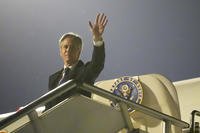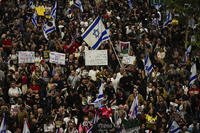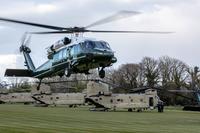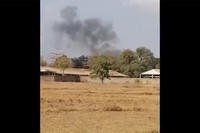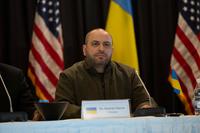The U.S. military's continuing efforts to defuel and ultimately close the underground Red Hill fuel storage facility have sparked an unexpected controversy all the way in the Philippines as the Pentagon grapples with how to supply its forces in the Pacific.
Just before Christmas, commanders hailed the departure of the Yosemite Trader — a commercial ship carrying the last shipment of "usable" fuel from Red Hill — as it sailed from Pearl Harbor bound for Subic Bay.
The Philippine port is one of several locations the U.S. military is using to redistribute the more than 104 million gallons of fuel that sat in tanks just 100 feet above a critical aquifer most of Honolulu relies on for drinking water.
But just as the voyage neared completion, Philippine Sen. Imee Marcos on Jan. 10 released a statement accusing the U.S. and Philippine governments of a lack of transparency regarding the shipment. A day later the Subic Bay Metropolitan Authority told Philippine Media that the Yosemite Trader had canceled its request to enter Subic Bay.
Cmdr. Matthew Comer, a spokesperson for U.S. Indo-Pacific Command, told the Honolulu Star-Advertiser that "delivery of fuel shipped from Red Hill to Subic Bay was delayed due to country diplomatic clearance. On Friday, January 19th, diplomatic clearance was received and the ship offloaded fuel in Subic Bay before returning to sea."
But the flurry of news around the fuel delivery drew scattered protests in the Philippines.
In a statement to the Philippine Daily Inquirer, the group Stop the War Coalition Philippines said that "aside from health and environmental repercussions, the security risk is posed by who will ultimately use it, what they will use it for, and who will be responsible for securing it, we are talking about massive amounts of dangerous, combustible substances. We demand answers, accountability and transparency in this matter that will impact the public."
Marcos, who helped set off the controversy, is the elder sister of Philippine President Ferdinand Marcos Jr. and chair of the Philippine Senate's committee on foreign relations. Both siblings lived in Hawaii when their father, the late Philippine dictator Ferdinand Marcos Sr., was overthrown in 1986 and went into exile in Honolulu.
Lately, Marcos Jr. has been working to shore up relations with the U.S. military as tensions escalate between the Philippines and China. Manila and Beijing are locked in a series of disputes over maritime territorial and navigation rights. In 2016 an international court ruled in the Philippines' favor and declared that China's territorial claims had "no legal basis."
But Beijing doubled down, with the Chinese military building bases on disputed islands and reefs, and now frequently attacking and harassing Filipino fishermen and other maritime workers. In 2023 the Philippines signed an agreement with the Pentagon allowing the U.S. military access to several bases in the country to store equipment and conduct operations.
That Imee Marcos would vocally criticize the fuel transfer as her brother is trying to tighten the alliance surprised some. The Marcos family has historically worked closely together, guarding their wealth and working to rebuild their reputation in the country as they gradually worked their way back into power.
But Patricio Abinales, a professor at the University of Hawaii at Manoa who specializes in the Philippines, said the rift comes as no surprise and called it "all politics."
"The sister has been marginalized from the brother's inner circle ever since he became president," Abinales said. "Imee was and is still close to former President Rodrigo Duterte and his daughter, Vice President Sara Duterte. President Marcos' closest advisers are his cousin, the speaker of the House, Martin Romualdez, and the first lady, Lisa Araneta."
Marcos Jr. ran for office in 2022 with a campaign platform promising to continue many of Rodrigo Duterte's policies, including seeking closer ties with China and rethinking relations with the United States. The Marcos and Duterte families worked closely together.
But over the past few months, the Marcos-Duterte alliance has begun to fray as both families prepare for the next elections. The Philippine legislature recently slashed Sara Duterte's large "confidential funds" budget, and some lawmakers close to Marcos have expressed an openness to allow the International Court of Justice to prosecute Duterte's father for human rights abuses that resulted from the brutal drug war he launched in 2016, which killed as many as 11,000 people.
During his presidential campaign Marcos touted his friendships with Chinese officials in campaign interviews and argued he could better negotiate with the Chinese government, and even suggested setting aside the 2016 court ruling. But Chinese forces also have continued to aggressively harass Philippine vessels despite initial friendly overtures from Marcos.
The attacks have deepened anti-Chinese sentiments in the Philippines and pushed the Marcos administration to take a much tougher stance with Beijing as it now seeks closer cooperation with the United States.
During a visit to Hawaii in November, Marcos said in a speech in Waikiki that "the situation has become more dire than it was before. The nearest reefs that the (Chinese military) have started to show interest in, in terms of slowly using these atolls and shoals for building bases ... are approaching closer and closer to the Philippine coastline. And the nearest one is now around 60 nautical miles from the nearest Philippine coast."
The Dutertes have publicly criticized Marcos personally for his pro- U.S. shift, accusing him of being an American lackey.
The Marcos family hails from the Philippine province of Ilocos Norte, the same place much of Hawaii's Filipino population comes from. The family continues to have strong supporters in Hawaii. Abinales said he suspects that helped inspire Imee Marcos' decision to press the issue of the Red Hill fuel transfers.
"Imee wants to be part of the central drama, and the only way she can do this is to raise hackles like the one on the U.S. Navy fuel ship," said Abinales. "Allies in Hawaii must have alerted her to this. The question is, Who are these people among the large Ilocano community in Honolulu?"
For years the Navy insisted that Red Hill was vital to national security. But in November 2021 fuel from the facility tainted the Navy's Oahu water system, which serves 93,000 people including service members, military families and civilians living in former military housing areas.
The Pentagon announced in March 2022 that it would close Red Hill, and military officials said they would pursue a new "distributed" strategy of storing fuel at various points around the region, as well as "afloat locations" aboard tankers. After years of insisting they couldn't keep forces fueled without Red Hill, military brass now argue the new plan will make supply lines more "resilient" and give commanders more flexibility.
The Pentagon chartered several commercial tankers to remove fuel from Red Hill. In addition to Subic Bay, they ferried fuel to West Oahu facilities run by Island Energy Services at Campbell Industrial Park, to a fuel storage point in San Diego and to another in Singapore.
In her statement on the fuel delivery to the Philippines, Imee Marcos accused the Philippine military of "inexplicable silence" and noted that Subic Bay — which was a U.S. Navy base until the Philippine government ordered it closed in 1992 after a disagreement over leasing costs — is not among the facilities the U.S. military can use to pre-position forces or equipment under the 2023 agreement.
But the Philippine military responded that there was "nothing to explain on the fuel shipment." Spokesperson Col. Medel Aguilar told Filipino reporters that "the process that was followed by the U.S. government, these are all administrative in nature and did not involve the participation of the armed forces."
Abinales said it was unlikely that the political spat between the Marcos and Duterte families would lead to any sort of meaningful disruptions in the alliance between the U.S. and the Philippines.
"Both militaries have had a long and close relationship, and this even survived the anti- U.S., pro- China position of Rodrigo Duterte," said Abinales. "(Duterte) cursed at U.S. officials a lot during his time, but Rodrigo could never get the Philippine military to reorient itself towards China and away from (the United States).
His generals put their foot down, and he quietly allowed U.S.-Philippine military exercises to continue."
___
(c)2024 The Honolulu Star-Advertiser
Visit The Honolulu Star-Advertiser at www.staradvertiser.com
Distributed by Tribune Content Agency, LLC.

